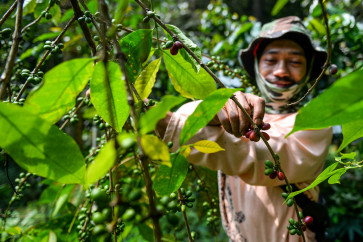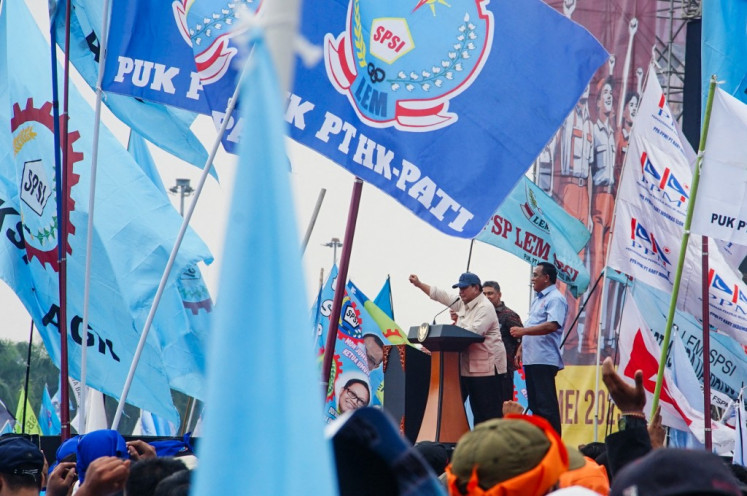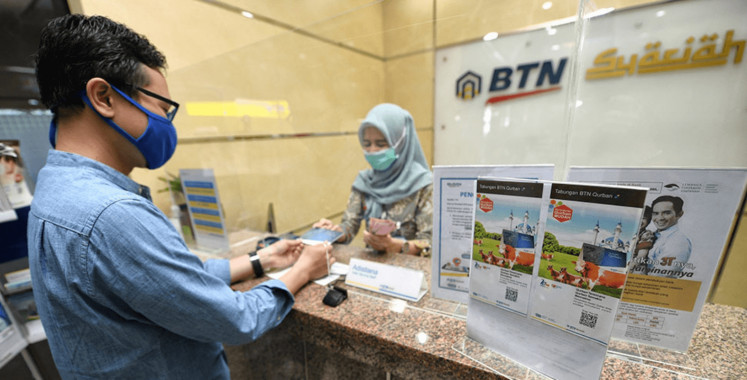Resumption of ore exports could put smelting industry at risk: CEO
Change text size
Gift Premium Articles
to Anyone
 Economic talks – Finance Minister Sri Mulyani Indrawati (right) and acting energy and mineral resources minister Luhut Binsar Pandjaitan (left) walk into a press conference room, where they announced a revision to a regulation on income tax in oil and gas at the Finance Ministry in Jakarta on Sept.23. (Antara/Rosa Panggabean)
Economic talks – Finance Minister Sri Mulyani Indrawati (right) and acting energy and mineral resources minister Luhut Binsar Pandjaitan (left) walk into a press conference room, where they announced a revision to a regulation on income tax in oil and gas at the Finance Ministry in Jakarta on Sept.23. (Antara/Rosa Panggabean)
M
ajor nickel producer PT Vale Indonesia has urged the government to reconsider its plan to allow ore exports because it could put the country’s smelting and mineral processing industry at risk.
“We hope the government will rethink the plan and implement a relaxation policy not for all minerals,” Vale chief executive officer Nico D. Kanter said on Tuesday.
He argued that once the policy came into effect, many mining companies would export nickel ore and flood the world market, which would push down nickel prices.
Processing and Smelting Companies Association (AP3I) deputy chairman Jonathan Handojo said the government’s plan could also lead to idle smelters, which had cost mining companies huge amounts of money to develop over many years.
The government banned ore exports in 2014 in a bid to push mining companies to build smelters at which raw materials could be processed into value-added materials. Many companies started developing smelters after the policy came into force. Vale, for instance, this year spent US$3 billion on expanding its nickel smelter in Sorowako, South Sulawesi.
On Tuesday, acting energy and mineral resources minister Luhut Pandjaitan said the government was planning to change the 2014 regulation by allowing ore to be exported, particularly ore with a 1.8 percent nickel content.
“No one can process such ore domestically. Thus, we will consider exporting it," Luhut said
Jonathan said the government’s reason did not make sense because ore with a 1.8 percent nickel content could be processed domestically into nickel pig iron using a blast furnace or a container used for smelting iron from ore. (win/ebf)









